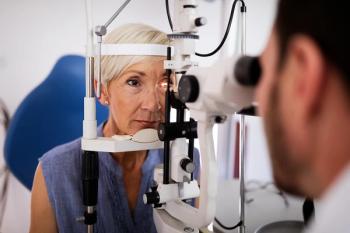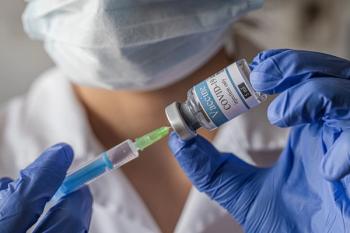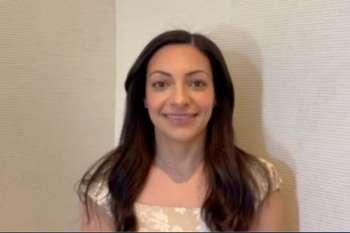
NIH-funded clinical trial results support “step therapy” for DME treatment
A recent clinical trial from the DRCR Retina Network examined a stepped regimen of anti-VEGF drugs bevacizumab and aflibercept.
Funded by the National Institutes of Health’s (NIH) National Eye Institute (NEI) and the National Institute of Diabetes and Digestive and Kidney Diseases (NIDDK), a recent
Results from this trial—published in the
“Our study showed that switching treatments when needed is a reasonable strategy,” said Chirag Jhaveri, MD, Austin Research Center for Retina, Texas, the lead study author said in the release. “Insurance companies often require clinicians to start with the less expensive treatment, so we really wanted to see how a specific treatment strategy using this approach would affect patient care.”
The main complication of DME, which is caused by diabetes-related alteration to retinal blood vessels, is fluid build-up in the retina, and it is commonly treated with anti-VEGF drugs. Symptoms include blurred vision, and if untreated, vision loss can be permanent and lead to blindness. Vision can be restored with retinal injections of anti-VEGF drugs.
The DRCR Retina Network has previously shown that bevacizumab and aflibercept improve visual acuity in people with DME; however, while aflibercept is approved by the US Food and Drug Administration (FDA) to treat DME and averages better visual outcomes, bevacizumab is much more cost-effective and is sometimes required by insurers as a first line treatment.
“We’ve demonstrated here one method to managing a step treatment, where the outcomes are similar to the best existing treatment protocol with [aflibercept],” said Jennifer Sun, MD, MPH, of Joslin Diabetes Center and Harvard Medical School, Boston, and chair of diabetes initiatives for the DRCR Retina Network. “Anytime we can add to a clinician’s toolbox, whether it’s a new medication or a new approach to using existing medications, is in this study, it’s a benefit for patients.”
The study
The study enrolled 270 participants with diabetic macular edema (DME), some of whom received treatments in both eyes. At enrollment, all had best-corrected visual acuity between 20/50 and 20/320.
At the start of the study, half of the eyes were assigned to aflibercept, and the other half were assigned to bevacizumab. Participants who needed treatment in both eyes were assigned a different drug for each eye.
Study participants received either bevacizumab or aflibercept injections every 4 weeks for 24 weeks. If eyes assigned to bevacizumab failed to reach the pre-set improvement benchmarks starting at 12 weeks, the eye was switched to aflibercept.
After 24 weeks, physicians could taper down the frequency of injections as appropriate to maintain visual acuity, and the study collected information on the participants’ retinal structure and visual acuity for 2 years.
Conclusion
At the end of 2 years, eyes in both groups had similar visual acuity outcomes, improving on average approximately 3 lines on an eye chart, compared to the trial’s start. In the bevacizumab group, 70% of eyes switched to aflibercept during the study.
“While most participants on [bevacizumab] eventually switched to [aflibercept], they still had improvement during those initial weeks, even if they didn’t hit our pre-set benchmarks, said Adam Glassman of the Jaeb Center for Health Research and director of the DRCR Retina Network coordinating center. “There are large cost disparities between these drugs, so differences in treatment strategies may have substantial cost implications.”
Newsletter
Want more insights like this? Subscribe to Optometry Times and get clinical pearls and practice tips delivered straight to your inbox.




























